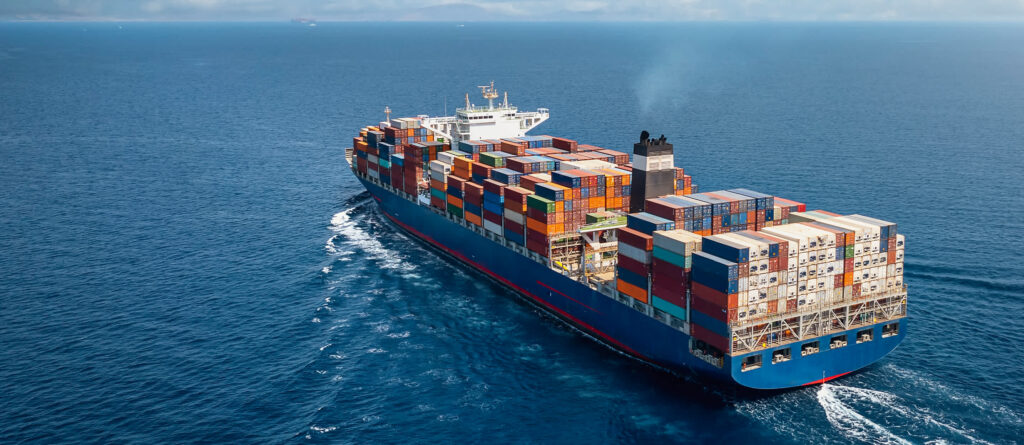- By TOP CHINA FREIGHT
- October 9, 2025
- Sea Freight, Shipping
Table of Contents
Watches sea freight from China is one of the most efficient and cost-effective ways to transport large volumes of watches worldwide. China’s key manufacturing hubs—Shenzhen, Guangzhou, and Yiwu—produce millions of mechanical, quartz, and smartwatches every year. This guide explains how to ship watches safely by sea, including costs, transit times, documentation, and practical shipping strategies.

Why Importers Prefer Sea Freight for Watches
Sea freight is the preferred method for watch importers who deal with high volumes or wholesale distribution. While air freight is faster, its cost per kilogram can be four to five times higher. Since watches are small but often shipped in bulk, sea freight offers substantial cost savings and flexible container options.
Main advantages include:
1.Economical transport: Lowest cost per unit for large shipments.
2.High-volume capacity: Ideal for retailers or e-commerce warehouses.
3.Safe containerization: Protection from external impact and weather.
4.Environmental benefits: Lower carbon emissions than air freight.
5.Global accessibility: Frequent vessel schedules from all major Chinese ports.
Moreover, sea freight allows importers to plan inventory cycles strategically, ensuring stable supply without excessive logistics expenses.
How Much Does Watches Sea Freight from China Cost?

The cost of shipping watches by sea from China varies depending on several key factors: destination, incoterms, container size, and freight market fluctuations. The rates below reflect average spot market prices in 2025.
| Shipping Option | Typical Cost (USD) | Volume | Transit Time | Ideal For |
|---|---|---|---|---|
| LCL (Less than Container Load) | $60–$120 per CBM | 1–15 CBM | 25–40 days | Small to medium watch shipments |
| FCL (20ft Container) | $900–$1,600 | 28 CBM | 25–35 days | Large orders or consolidated shipments |
| FCL (40ft Container) | $1,600–$2,800 | 58 CBM | 25–35 days | High-volume or mixed product cargo |
Influencing factors include:
1.Port-to-port distance: Farther destinations like South America cost more than East Asia routes.
2.Peak seasons: Pre-Chinese New Year and Q3 holiday demand raise rates.
3.Fuel surcharges & BAF (Bunker Adjustment Factor): Impact base freight rates.
4.Handling & destination charges: Differ by port customs policy.
To get accurate pricing, importers should always request a door-to-door quotation that includes local pickup, port charges, and destination delivery.
Understanding Transit Times for Watches Sea Freight
Transit times depend largely on route, shipping line, and customs efficiency. Below is a practical breakdown of estimated schedules from major Chinese ports.
| Destination Country | Main Port of Discharge | Estimated Transit Time | Common Route Example |
|---|---|---|---|
| United States (West Coast) | Los Angeles | 18–25 days | Shanghai → Los Angeles |
| Europe | Rotterdam / Hamburg | 25–35 days | Ningbo → Rotterdam |
| UK | Felixstowe | 28–38 days | Qingdao → Felixstowe |
| Australia | Sydney | 15–22 days | Shenzhen → Sydney |
| UAE | Jebel Ali | 20–28 days | Guangzhou → Dubai |
| Canada | Vancouver | 22–30 days | Ningbo → Vancouver |
Additional time considerations:
1.Booking & space confirmation: 2–5 days
2.Customs clearance (export + import): 3–7 days
3.Inland delivery: 2–4 days
Thus, total lead time from factory to final warehouse typically ranges between 30–45 days.
Essential Documents for Watches Sea Freight from China

Proper documentation ensures smooth customs clearance and prevents costly delays. Below is a checklist of essential paperwork for watch imports.
| Document | Description | Notes |
|---|---|---|
| Bill of Lading (B/L) | Contract of carriage between shipper and carrier | Required for cargo release |
| Commercial Invoice | Declares product value, terms, and buyer info | Must include HS Code 9101–9102 |
| Packing List | Lists quantity, packaging, and net/gross weight | Helps inspection authorities verify shipment |
| Certificate of Origin (CO) | Proves goods are made in China | Determines tariff preferences |
| Insurance Certificate | Covers damage/loss during transit | Mandatory for high-value watches |
| Import License | Required by certain countries for electronics | Applicable for smartwatches |
| Customs Declaration Form | Used by local brokers for import clearance | Matches invoice details |
Accurate, consistent documentation is vital. Even minor discrepancies (e.g., invoice vs. packing list values) may result in customs holds.
Step-by-Step Process of Sea Shipping Watches from China
Shipping watches from China involves several stages. A clear understanding of each phase helps minimize risk and cost.
1.Supplier Coordination:
Confirm production schedule, packaging, and export readiness.
2.Freight Booking:
Reserve container space 1–2 weeks before goods are ready.
3.Export Customs Clearance:
The freight forwarder files documents with Chinese customs.
4.Container Loading:
Cargo is packed and sealed under supervision.
5.Sea Transit:
Shipment moves to the destination port according to the chosen route.
6.Arrival & Import Customs:
Local broker submits documents and duties.
7.Delivery to Warehouse:
Goods are trucked to the importer’s distribution center.
Every step can be tracked digitally using the shipping line’s portal or freight forwarder system for transparency.
Packaging and Handling Requirements for Watches
Because watches are precision instruments, their protection during sea transit is critical. Exposure to moisture, vibration, or temperature fluctuations can cause damage.
Best packaging practices:
- Place each watch in a foam-lined individual box.
- Use anti-static and moisture-proof bags for smartwatches.
- Reinforce cartons with double layers for stacking safety.
- Seal cartons with waterproof tape and desiccant packs.
- Use ISPM-15 compliant pallets for export shipments.
Additionally, some importers request temperature-controlled containers (reefer or dehumidified units) for premium watch shipments.
FCL vs LCL: Which Option is Best for Watch Imports?

| Criteria | FCL (Full Container Load) | LCL (Less than Container Load) |
|---|---|---|
| Cost per unit | Lower | Slightly higher |
| Total shipping time | Faster (direct loading) | Longer (consolidation & deconsolidation) |
| Cargo handling | Minimal | More frequent handling |
| Ideal for | Bulk watch shipments | Small or sample quantities |
| Security | Higher | Moderate |
Recommendation:
If shipment volume exceeds 15–18 CBM, choose FCL to reduce handling and cost. For smaller importers testing new suppliers, LCL is more flexible.
How to Reduce Watches Sea Freight Costs

Avoid January–February and September–December to reduce costs.
Fill containers fully to maximize sea freight efficiency.
Negotiate with multiple agents for competitive quotes.
Choose Ningbo or Shanghai for faster and more frequent sailings.
FOB provides better control over freight and logistics choices.
Sustainability in Watches Sea Freight
Modern importers increasingly focus on green logistics. Sea freight already has the lowest CO₂ emissions per ton-kilometer compared to other modes. Additional steps include:
- Choosing carriers that use low-sulfur fuels.
- Opting for eco-certified packaging materials.
- Working with forwarders offering carbon offset programs.
These initiatives not only help the environment but also enhance brand reputation among eco-conscious consumers.
Case Study: Efficient Watch Import to Europe

A European distributor importing 15,000 designer watches from Guangzhou opted for LCL shipping via Ningbo to Rotterdam. Their forwarder provided full logistics management, including consolidation, customs filing, and last-mile trucking.
Results:
- Total shipping cost: $2,300 (15 CBM)
- Transit time: 33 days door-to-door
- Customs clearance completed within 48 hours
- Savings: 58% compared to air freight
- Zero product damage due to humidity control packaging
This case highlights how strategic planning and professional coordination can ensure safe, cost-effective watches sea freight from China.
Conclusion
Sea freight is the most practical and economical solution for importing watches from China, especially for wholesale or large-volume operations. With careful preparation—accurate documents, professional packaging, and experienced freight partners—you can achieve both cost savings and secure delivery. Whether dealing with luxury, fashion, or smartwatches, choosing sea freight enables stable, scalable, and environmentally friendly global logistics.
Need a Shipping Quote?
Click below to get a free, no-obligation quote from TJ China Freight.
We’ll respond within 24 hours with the best shipping options for your cargo.
FAQ
Q1:Can I mix different watch brands in one container?
Yes, but ensure proper labeling and documentation for each brand. Customs authorities may inspect goods separately if brand ownership varies.
Q2:What’s the best Incoterm for watch importers?
FOB (Free on Board) is ideal as it allows buyers to choose their preferred shipping line and control freight cost while suppliers handle export formalities.
Q3:Are there any restrictions on shipping smartwatches by sea?
Smartwatches containing lithium batteries must comply with IMO regulations and battery safety standards. Declare them properly to avoid customs delays.
Q4:How do I track my watch shipment?
Most carriers and forwarders provide real-time tracking via bill of lading or container number. You can monitor vessel position and estimated arrival online.
Q5:Do sea freight rates for watches change frequently?
Yes, they fluctuate based on fuel costs, seasonal demand, and geopolitical factors. Always request updated quotes before finalizing orders.
